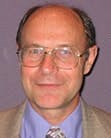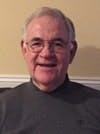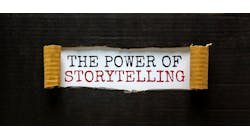When I was asked to consider writing this column over two years ago, I said, “Yes,” but with a little trepidation. What would I write about for two years — the minimum commitment Mark Rosenzweig requires of a CP columnist? Despite my concern, with each article, coming up with new ideas became easier. The writing also came easier and easier; it helps that Amanda Joshi touches up my prose. Next month, a new columnist will take my place and I know you will enjoy his columns going forward.
Having completed my tenure, I challenge you on three fronts: professionalism, mentoring, and finding other opportunities to give back.
First, pursue professionalism. I encourage you to not only to seek professional registration but also to apply the code of ethics that you learn as you become an engineer and as you practice.
We are at a crossroads in science and technology. The amount of information can be overwhelming and the veracity of much of the information questionable. You are in a unique position as energy experts to bring some fundamentals and practical experience to the various debates. To do this, you must speak out and offer your opinions. I know this doesn’t come naturally to many of us, but we hold vast knowledge and experience that can help with decisions being made regarding energy — many of which will impact our children’s future as well as that of future generations.
Second, I challenge you to mentor. Jake and I have received lots of coaching and mentoring over the years. I can recall receiving words of guidance not just a young engineer but even now as a senior professional.
The late Wil Stoecker at the University of Illinois was one of those mentors as he guided me in my activities within ASHRAE. One year, ASHRAE used the theme “On the Shoulders of Giants” to describe the annual plan for the organization. It was about taking what we had been given and passing it along to the organization’s newcomers.
Numerous mentors and coaches also encouraged and guided me during my years at DuPont. Returning the favor, Jake and I also coached and mentored over the years and we find it a very rewarding activity. Usually, we are asked to mentor younger engineers in our organizations. This is a way to build on our own experiences.
The third challenge is to step out and do something new — giving back to the engineering community and to society in general. A big part of engineering is giving back. For me, it was writing this column. If you ever have had thoughts about sharing your knowledge and experience, there is no better way to share it with a large number of people than through a magazine such as Chemical Processing. Other magazines, journals and entities also look for authors and writers to share their expertise.
In addition, loads of organizations need people with science and engineering skills. For example, many STEM programs are searching for individuals to help within the classroom as well as with the various engineering competitions. From personal experience, there is a great deal of joy from seeing eyes brighten as they come to understand a complicated science or math problem or explanation. This is true whether they are your own grandchildren, school children, young engineers or colleagues.
As for me, I have said to folks I’ve mentored along the way, “We do our future planning, not to control our future but to be prepared when doors open. As those doors open, if we’ve done our planning, we know which is the right door for us to step through.” Recently, several doors have opened up to me. One is working with grade school children who have shown an interest in the energy field. I am sure they will bring energy to my life.
I wish you all well and hope you will take me up on some of these challenges. Happy energy hunting!
Earl M. Clark, PE, – Engineering Manager, Global Energy Services. Clark retired from DuPont after a career of 39 years and 11 months and joined Hudson’s Global Energy Systems Group as Engineering Manager. During his over 43 years in the industry, he has worked in nearly all aspects of the energy field; building, operating and troubleshooting energy facilities for DuPont. He began his energy career with Duke Power and Clemson University during the energy crisis in the 1970s.
Active in both, the American Society of Mechanical Engineers and the American Society of Heating, Ventilating, Refrigerating, and Air-Conditioning Engineers (ASHRAE), Clark was chairman of ASHRAE's task group on Halocarbon Emissions and served on the committee that created ASHRAE SPG3 - Guideline for Reducing Halocarbon Emissions. He has written numerous papers on CFC alternatives and retrofitting CFC chillers. He was awarded a U.S. patent on a method for reducing emissions from refrigeration equipment. He has served as technical resource for several others.




